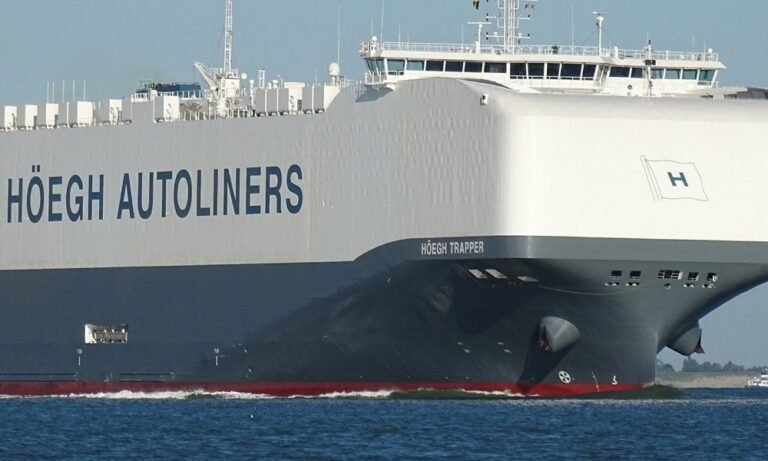Revolutionizing Ship Recycling: Höegh Autoliners and Nordic Circles’ Groundbreaking Agreement
In a landmark announcement on the Blue Talks stage at Nor-Shipping, Höegh Autoliners and Nordic Circles unveiled a pioneering agreement that could revolutionize ship recycling and the construction industry alike. The NOK1.3bn ($128m) initiative will upcycle decommissioned vessels from Höegh Autoliners into certified, low-emission building materials—entirely within Norway, without melting, exporting, or heavy emissions.
The project marks a major step forward in maritime sustainability and circular economy practices. Up to eight vessels from Höegh Autoliners are set to undergo upcycling, with the first scheduled to be decommissioned in 2026 at AF Offshore Decom in Vats, renowned as one of the world’s most environmentally friendly dismantling facilities. The emissions savings from these eight vessels alone could reach 100,000 tons of CO₂, the two companies claim, directly benefiting the carbon-intensive construction sector.
“This is a cradle-to-grave solution,” said Sebjørn Dahl, chief operating officer of Höegh Autoliners. “We aim to be the greenest in deep-sea shipping with a net-zero target by 2040. We’re already investing in green ammonia and building the world’s most eco-friendly car carriers. This agreement lays the foundation for a new green industrial chapter in Norway.”
John Jacobsen, CEO of Nordic Circles and its subsidiary Oppsirk, hailed the project as “circular economy at its best,” turning what was once hazardous waste exported to Asia into a valuable domestic resource. “The eight ships will save around 100,000 tons of CO₂ and open the door to mobilizing yards and shipping companies across Europe.”
The initiative is supported by Norway’s Green Platform public funding mechanism and involves a consortium of top-tier players including Statsbygg, the municipalities of Oslo and Bergen, Skanska, Green Yard, Equinor, DNB, and SINTEF. AF Offshore Decom is the main contractor, with a value chain rooted entirely in Norwegian technology, labor, and industry.
Currently, Turkey holds the EU’s only large-scale ship recycling operations. This Norwegian-led initiative aims to challenge that dominance by creating a domestic and regional circular steel economy. Instead of melting steel—a process responsible for vast CO₂ emissions—this model emphasizes reuse under commercial conditions with as much as 97% lower emissions.
The long-term goal is to position Norway as a hub for green ship upcycling and secure Europe’s foothold in the global maritime transition.

